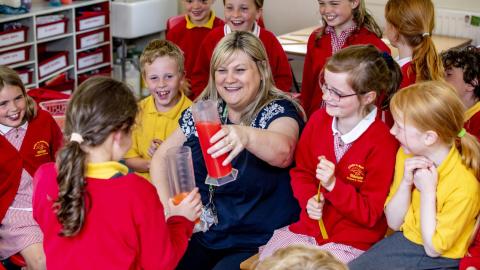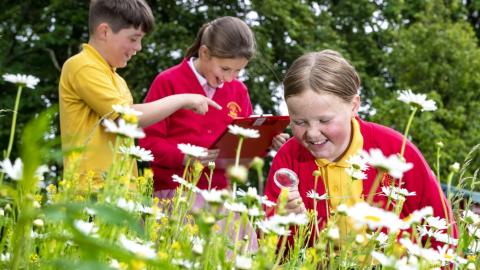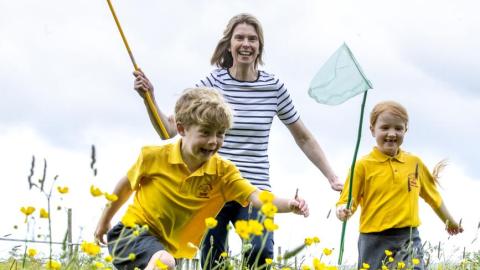Science Curriculum Intent
At Kirkby Malham Primary School, we recognise how science impacts every aspect of daily life, and without science, humankind would not have made progress throughout history. As one of the core subjects taught at primary level, we give the teaching and learning of science the prominence it deserves.
Learning science is concerned with increasing pupils’ knowledge of our world, and with developing skills associated with science as a process of enquiry. Our science curriculum develops the natural curiosity of each child no matter their demographic, encourages them to have respect for living organisms, and instil in pupils the importance of caring for the natural environment.
Science Implementation
We plan our lessons based on the EYFS (Understanding the World), Science national curriculum and PZAZ where teaching videos provide teachers with appropriate CPD around the unit of work as well as accompanying teaching slides and worksheets. Teachers have the flexibility to plan to their class’s needs and learning styles.
Key Principles
Lessons are throughout school are around 2 hours per week. Using the requirements of the Science National Curriculum as our guide, our Science lessons offer opportunities for children to:
- Develop scientific knowledge and conceptual understanding of the disciplines of Physics, Chemistry and Biology.
- Formulate their own questions about the natural world.
- Foster the confidence to ‘be wrong’ when it comes to making predictions and postulating their own theories.
- Promote an awareness of the importance of teamwork in scientific experimentation.
- Practically investigate their questions using various methods of enquiry.
- Gain competence in the science skills of planning scientific investigations, gathering and analysing data and critical evaluation of investigations across the disciplines.
- Use a range of methods to gather data from investigations and secondary sources including I.C.T., drawings, diagrams, videos and photographs.
- Present data in a variety of methods including tables, bar charts, line graphs, pictograms and pie charts.
- Produce comprehensive science reports that demonstrate their proficiency in the scientific method.
- Have care for the safety of all individuals in lessons by developing knowledge of the hazards of the materials and equipment they handle, along with mitigating these hazards.
- Develop an enthusiasm and enjoyment of scientific learning and discovery.
- Understand how Science and Scientists shape the world in which we live.
Science Impact
Marking
Various means of feedback are used to provide Science feedback depending on the nature of the lesson. Teachers may: make observations during practical investigations, give verbal feedback or written feedback at the end of each session.
Assessment
Teachers assess their class’s prior learning using questioning at the start of a unit as well as discussing possible ‘Big questions’ to investigate for the unit of work. At the end of each units, quizzes are completed to show progress as well as identifying gaps in learning.
Outdoor learning to promote science
We use our forest area for science as much as is possible, We observe over time and learn about habitats and ecosystems. Learning from first hand experience is what we are passionate about at Kirkby Malham School.



